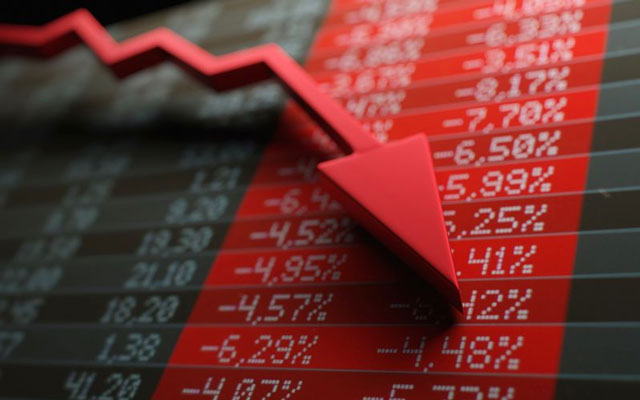Daijiworld Media Network- Mumbai
Mumbai, Aug 1: Indian equity benchmarks Sensex and Nifty ended in the red on Thursday, after US President Donald Trump’s unexpected announcement of a 25% tariff on all goods imported from India and a penalty on Indian purchases of Russian crude oil and military equipment jolted investor confidence.
The move, effective from August 1, sent shockwaves across Dalal Street, halting the Sensex’s two-day winning streak and sparking renewed global trade concerns.

The BSE Sensex fell by 296.28 points or 0.36% to close at 81,185.58. The index had earlier plunged by as much as 786.71 points to an intraday low of 80,695.15 before staging a partial recovery. Meanwhile, the NSE Nifty also ended lower by 86.70 points or 0.35% at 24,768.35.
Traders noted that while early trading saw panic selling, selective buying in heavyweight FMCG stocks helped curb deeper losses. However, fresh selling pressure emerged in the final hour of the monthly expiry session, dragging indices lower once again.
"The market witnessed high volatility on account of the surprise tariff move by the US. While FMCG stocks remained resilient, oil & gas counters were battered due to fears over future energy imports from Russia," said Vinod Nair, Head of Research at Geojit Financial Services.
Among the Sensex losers were Tata Steel, Sun Pharma, Reliance Industries, Adani Ports, NTPC and Asian Paints. These counters bore the brunt of the global uncertainty.
On the flip side, Hindustan Unilever Ltd (HUL) emerged as the star performer, surging 3.48% after the company posted a 5.97% rise in net profit for Q1 FY26 to ?2,768 crore, aided by tax-related gains. Other gainers included ITC, Power Grid and Kotak Mahindra Bank.
The US move, analysts believe, is aimed at pressuring India into aligning more closely with American trade policies. India, notably, becomes the first nation to face penalties for importing oil and defence hardware from Russia.
Ajit Mishra, SVP of Research at Religare Broking, commented, "The initial knee-jerk reaction to the US announcement saw indices plunge, but a rebound across key sectors helped markets pare losses. However, the recovery was short-lived, with selling pressure resurfacing in the latter part of the session."
Sector-wise, the BSE oil & gas index dropped 1.47%, energy 1.40%, metals 1.18%, and telecom 1.80%. On the other hand, FMCG and services indices managed to stay in the green.
The broader BSE midcap and smallcap indices too fell by 0.70% and 0.85% respectively, reflecting widespread caution.
Asian peers closed mixed—South Korea’s Kospi, China’s Shanghai Composite, and Hong Kong’s Hang Seng ended lower, while Japan’s Nikkei bucked the trend to close positive. European markets remained rangebound, and US markets closed mostly lower on Wednesday.
Meanwhile, Brent crude, the global oil benchmark, slipped by 0.74% to USD 72.70 per barrel amid uncertainty over international trade flows.
With global tensions and geopolitical uncertainties back in focus, market participants are expected to tread with caution in the coming sessions.